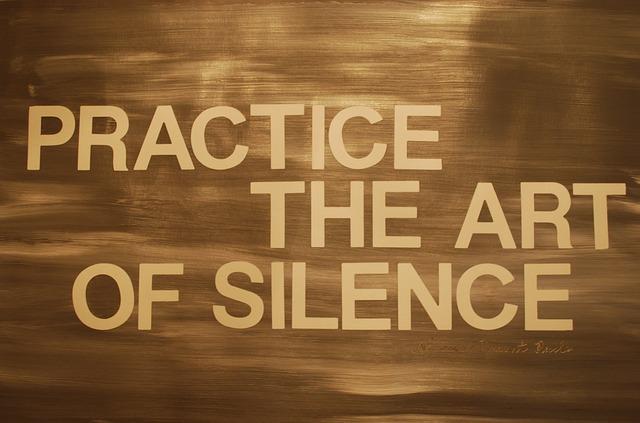In the intricate dance of life, hormones are the silent choreographers, orchestrating everything from our mood swings to our metabolism. Yet, in our fast-paced, modern world, this delicate balance can often go awry, leaving us feeling out of sync. Whether it’s the stress of daily commutes, the convenience of processed meals, or the glow of screens late into the night, myriad factors can tip the scales of our hormonal harmony. But fear not, for nature offers a gentle hand to guide us back to equilibrium. In this article, we explore the art of naturally balancing hormones, unveiling time-honored practices and holistic approaches that nurture the body’s innate wisdom. Embrace the journey to rediscovering balance, where small, mindful changes can lead to profound transformations in health and well-being.
Understanding the Symphony of Hormones: A Natural Approach
Our body’s hormonal system is a complex orchestra, where each hormone plays a crucial role in maintaining harmony. To nurture this balance naturally, consider embracing lifestyle adjustments that promote hormonal health. Start by focusing on nutrition: a diet rich in whole foods can significantly impact your hormonal equilibrium. Incorporate foods like leafy greens, nuts, seeds, and lean proteins to provide essential nutrients.
- Cruciferous Vegetables: Broccoli, kale, and Brussels sprouts support estrogen metabolism.
- Healthy Fats: Avocados and olive oil enhance hormone production.
- Fiber-Rich Foods: Oats and legumes aid in detoxifying excess hormones.
In addition to diet, mindful practices such as yoga and meditation can reduce stress, which is a known disruptor of hormonal balance. Regular exercise not only keeps your body fit but also stimulates the release of endorphins, often termed as ‘feel-good hormones’. Remember, achieving harmony in your hormonal symphony is about consistent and gentle changes, embracing the natural rhythm of your body.

Nourishing Your Body: Foods that Harmonize Hormonal Health
Achieving hormonal balance naturally begins with nourishing your body with the right foods. A diet rich in whole, nutrient-dense ingredients can be your ally in this journey. Consider incorporating the following into your daily meals:
- Leafy Greens: Spinach, kale, and Swiss chard are loaded with essential vitamins and minerals that support hormone production.
- Healthy Fats: Avocados, nuts, and seeds provide the omega-3 fatty acids necessary for hormonal synthesis and balance.
- Fermented Foods: Kimchi, sauerkraut, and yogurt are excellent for gut health, which is intrinsically linked to hormone regulation.
- Cruciferous Vegetables: Broccoli, cauliflower, and Brussels sprouts can help in metabolizing excess estrogen, promoting hormonal equilibrium.
Additionally, staying hydrated and limiting the intake of processed foods and sugars can further aid in maintaining a harmonious hormonal environment. Prioritizing these foods can help create a foundation for overall well-being and vitality.

The Power of Movement: Exercises to Balance Your Hormones
Embracing movement can be a transformative journey in naturally balancing hormones. The right exercises not only invigorate the body but also harmonize the delicate hormonal symphony within. Whether you’re seeking to alleviate stress, enhance metabolism, or support reproductive health, incorporating the following exercises into your routine can be a game-changer:
- Yoga: With its deep breathing and mindful postures, yoga can reduce cortisol levels and boost endorphins, fostering a state of calm and hormonal balance.
- Strength Training: Engaging in weightlifting or bodyweight exercises helps in the production of growth hormones and testosterone, crucial for both men and women.
- Walking: This simple, low-impact exercise can lower stress hormones and improve insulin sensitivity, making it an accessible choice for all.
- HIIT (High-Intensity Interval Training): Short bursts of intense activity followed by rest periods can enhance the production of human growth hormone, which plays a pivotal role in metabolism and muscle development.
Incorporating these activities into your lifestyle can help you harness the power of movement to nurture and balance your hormones naturally. Tailor your exercise routine to your personal preferences and needs, ensuring a sustainable and enjoyable path to well-being.

Mindful Practices: Stress Reduction Techniques for Hormonal Equilibrium
Embracing mindfulness can be a transformative journey toward achieving hormonal balance. By incorporating simple yet effective stress reduction techniques into your daily routine, you can support your body’s natural ability to regulate hormones. Here are some mindful practices to consider:
- Deep Breathing Exercises: Focus on slow, deep breaths to calm the mind and reduce cortisol levels. Try inhaling for four counts, holding for four, and exhaling for four.
- Meditation: Dedicate a few minutes each day to sit quietly and clear your mind. This practice can enhance emotional resilience and promote hormonal harmony.
- Yoga: Engage in gentle yoga poses that encourage relaxation and stress relief. Poses such as child’s pose and savasana are particularly effective.
- Mindful Walking: Take a walk in nature, paying attention to each step and your surroundings. This practice not only reduces stress but also boosts serotonin levels.
By integrating these practices into your lifestyle, you can nurture a sense of inner peace and create an environment where your hormones can thrive naturally.
Closing Remarks
As we conclude our exploration into the art of naturally balancing hormones, it’s clear that the journey toward hormonal harmony is as unique as the individuals embarking upon it. Embracing the intricate dance of lifestyle, nutrition, and mindfulness, we find ourselves not just striving for balance, but celebrating the vitality that comes with it. While each step—be it savoring a nutrient-rich meal, finding solace in a quiet moment of meditation, or nurturing a regular sleep pattern—serves as a thread in the tapestry of well-being, the true masterpiece is the vibrant, balanced life you create. So, take this knowledge as your guide, listen to your body’s whispers, and embark on your personal path to equilibrium with curiosity and compassion. Here’s to a future where balance is not just an aspiration, but a natural state of being.


































